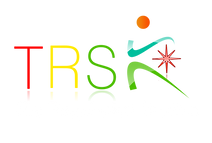
Dialectical Behaviour Therapy
Self-regulation Skills Training
Weekdays 8.00 am to 4.00 pm
T: 01582 945 963

Dialectical Behaviour Therapy
What is a dialectic?
A dialectic is a way of understanding situations where two things seem to be opposites, but both can be true at the same time. It’s like seeing both sides of a contradiction.
For example:
“I feel happy and I feel sad.”
“I want to lose weight and I want to keep eating cake.”
“I love you and I hate you.”
Instead of seeing these feelings as conflicting or one being more important than the other, a dialectic means accepting that both can be true at once. We use “and” to show that both parts of the statement are equally valid, rather than using “but,” which might suggest one is more important or correct than the other.
What is Dialectical Behaviour Therapy (DBT)?
Dialectical Behaviour Therapy (DBT) is a type of talking therapy that helps people manage personal challenges by changing the way they think and act.
Radical Acceptance - Radical Change: The key idea in DBT is to balance accepting the current situation with the desire to change things. This balance helps people either find new solutions or learn to cope with difficult feelings.
Why DBT at the Regulation Station?
The DBT approach is helpful for children and young people who face suspensions or exclusions due to disruptive or violent behaviour or who struggle to attend school because of anxiety or other mental health challenges.
DBT:
-
helps people who struggle with controlling their emotions and actions.
-
replaces unhelpful behaviours with more effective ones.
-
helps people experience their emotions without acting impulsively.
-
supports managing relationships with family, school, and peers.
-
helps individuals create a meaningful and fulfilling life.
DBT teaches four sets of skills – how to regulate emotions, interact effectively with others, tolerate distress, and find the middle path in ways that are not harmful to oneself or others. Mindfulness skills, at the core of all skills, involve effective awareness of and learning to control attention and are taught before each module of emotion regulation, interpersonal effectiveness, distress tolerance, and middle path.
Rathus and Miller, 2015
What is involved in Self-regulation Skills Training?
DBT teaches skills in five main areas:
Mindfulness Skills
- Being aware and focused on what's happening right now.
- Learning to pause and think before reacting.
- Understanding yourself better to handle problems.
Emotion Regulation Skills
- Keeping your emotions in check and handling them well.
- Figuring out how your feelings affect what you do.
- Finding ways to feel better and stay positive.
Interpersonal Effectiveness Skills
- Communicating clearly and respectfully with others.
- Knowing what matters most to you and solving problems with people.
Distress Tolerance Skills
- Dealing with tough situations without making them worse.
- Building your ability to handle crises.
- Avoiding actions that are harmful or impulsive.
Walking the Middle Path
- Finding balance between extreme thoughts and actions.
- Trying to meet your needs while considering others’.
- Accepting things as they are and understanding that change is possible.
- Realising that opposite feelings or ideas can be true at the same time.
Note: Mindfulness is part of every DBT lesson and is taught at the beginning of each module, rather than as a separate module on its own.